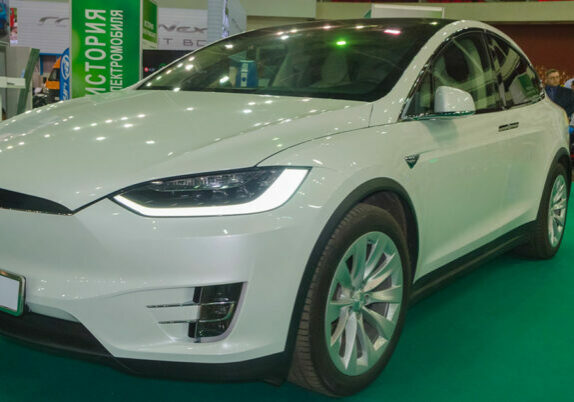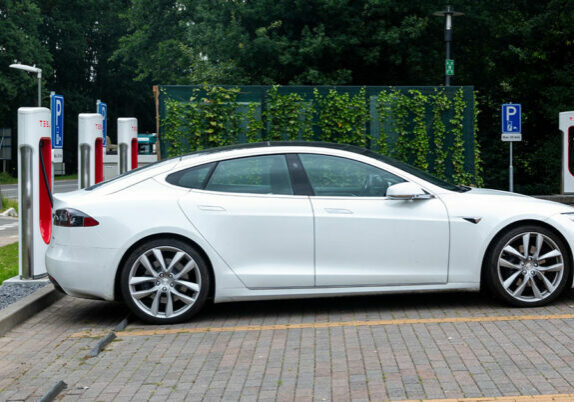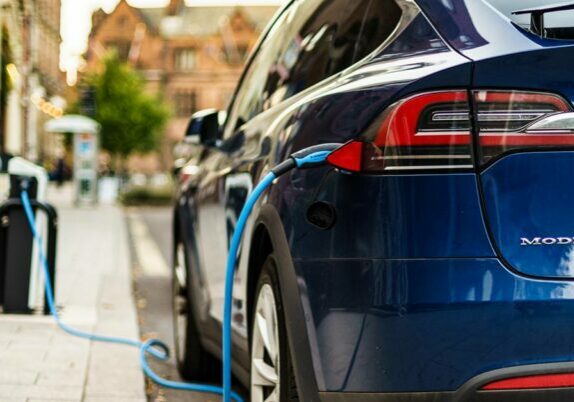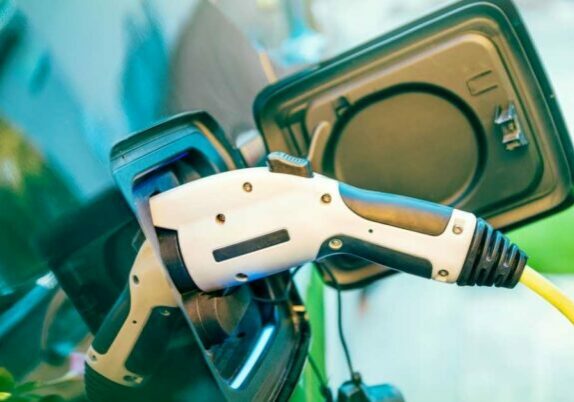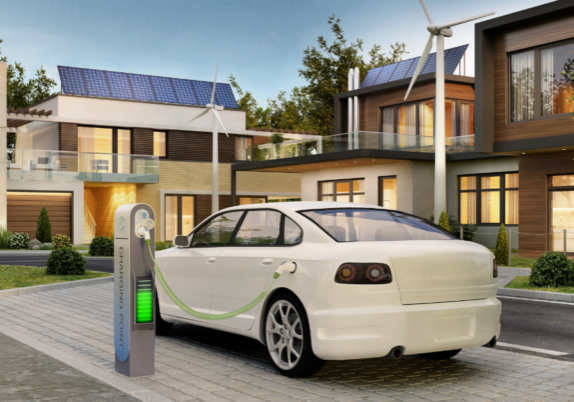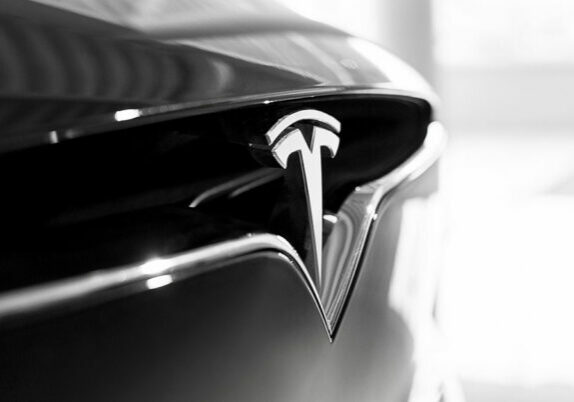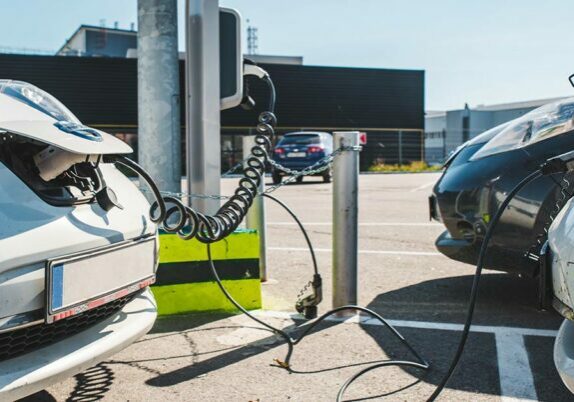If you’re considering purchasing an electric car, you may be wondering about the maintenance required to keep it in top condition. One question that often comes up is whether or not electric cars require oil changes.
The answer is no, but there are still important maintenance tasks to consider.
Understanding how electric cars work can help explain why they don’t need oil changes. Instead of relying on a gasoline-powered engine with many moving parts and fluids, electric cars use batteries and electric motors to propel the vehicle. This means there is no need for oil to lubricate the engine or cool it down, making oil changes unnecessary.
However, while you won’t have to change your car’s oil regularly like you would with a gasoline-powered vehicle, there are other types of maintenance that should be performed regularly to ensure your electric car runs smoothly and efficiently.
Electric Car Maintenance – Key Considerations
- Electric cars do not require oil changes as they do not have a combustion engine.
- Routine maintenance tasks such as tire rotations, brake inspections, and fluid checks are required for optimal performance and to extend lifespan.
- Battery maintenance is essential for longevity and efficient driving techniques can help extend battery lifespan.
- Regular maintenance appointments with a qualified technician should be scheduled and their recommended procedures followed to catch issues before they become major problems and prevent costly repairs.
No Oil Changes Required
As an electric car owner, you’ll be pleased to know that oil changes are a thing of the past. This is because electric vehicles don’t have internal combustion engines that require oil to lubricate and cool down their moving parts.
Without the need for regular oil changes, you’ll enjoy significant cost savings over time, as well as a more eco-friendly way of driving.
Reasons Why Electric Cars Don’t Need Oil Changes
No need for oil changes in electric cars – they’re as clean and hassle-free as a breath of fresh air on a spring day. Oil is not needed in electric vehicles because their engines are oil-free. Instead, they use batteries to power an electric motor that turns the wheels.
Here are some reasons why electric cars do not require oil changes:
- Electric motors have fewer moving parts than gasoline engines, which means there’s less wear and tear on the engine.
- Since there’s no combustion in the engine, there are no byproducts such as soot or carbon buildup that can cause engine damage.
- Electric car owners don’t need to worry about changing oil filters or disposing of used motor oil properly, reducing maintenance costs and environmental impact.
- With fewer fluids to change and fewer components that can fail, owning an electric car can mean lower long-term ownership costs compared to traditional gasoline-powered vehicles.
Cost Savings for Owners
You’ll be pleasantly surprised by the amount of money you can save as an owner of an electric vehicle. One of the main reasons for this is that electric cars don’t require oil changes, which can be a significant expense for traditional gas-powered vehicles.
While the cost of an oil change may not seem like much at first, it can add up over time, especially if you drive frequently or have multiple cars in your household. In addition to saving money on oil changes, electric car owners also typically spend less on maintenance and repairs overall. You’re likely to spend less time and money on routine maintenance tasks like replacing spark plugs or fixing exhaust systems.
Other Maintenance Tasks to Consider
Electric cars still require regular maintenance tasks, such as battery maintenance, tire rotation, and brake checks. Although electric cars do not need oil changes like traditional gas-powered vehicles, they still need proper care to ensure optimal performance.
Battery maintenance is essential for an electric car’s longevity. Over time, batteries can lose their ability to hold a charge efficiently. Regular battery maintenance involves keeping the battery clean and ensuring it is within its operating temperature range. A
Tire rotations are also important for all cars but particularly so for electric ones. Electric vehicles tend to be heavier than gas-powered vehicles due to their batteries’ weight. This extra weight places more stress on tires and causes them to wear out faster than usual. A tire rotation every 6-12 months helps distribute wear evenly across all four tires and extends their lifespan. By performing these basic maintenance tasks regularly, you can help your electric vehicle last longer without any significant issues down the road!
In summary, while electric cars may not require oil changes like traditional gasoline-powered vehicles do, they still need routine maintenance tasks such as battery maintenance and tire rotations – along with other services such as brake checks – to keep them running smoothly and efficiently over time! By incorporating these tasks into your regular vehicle upkeep schedule and adhering to manufacturer recommendations regarding service intervals, you can extend the life of your electric car while avoiding costly repairs down the line!
Importance of Regular Maintenance
To ensure optimal performance and extend the lifespan of your electric vehicle, regular maintenance is crucial. By performing routine checks on your vehicle’s battery, brakes, tires, and other components, you can catch issues before they become major problems and prevent costly repairs down the line.
Neglecting basic maintenance tasks could lead to decreased efficiency and even safety hazards while driving. So, don’t forget to take care of your electric vehicle by scheduling regular check-ups and maintenance appointments. It will not only save you money but also ensure your safety and the longevity of your vehicle.
Ensuring Optimal Performance
If you want your electric car to perform at its best, it’s important to keep up with regular maintenance. This includes efficient driving techniques and proper battery maintenance.
Efficient driving can help extend the lifespan of your battery by reducing unnecessary wear and tear. This means avoiding harsh accelerations and decelerations, maintaining a consistent speed, and using regenerative braking when possible.
Battery maintenance is also crucial for optimal performance. Keeping your battery charged within the recommended range (usually between 20-80%) can help prolong its lifespan. Additionally, it’s important to regularly check for any signs of damage or corrosion on the battery terminals.
If you notice any issues, it’s best to have them addressed by a professional technician as soon as possible to avoid further damage or potential safety hazards. By taking these steps, you can ensure that your electric car continues to perform efficiently and reliably over time.
Extending the Lifespan of Your Electric Vehicle
You can increase the longevity of your EV by regularly scheduling maintenance appointments with a qualified technician and following their recommended procedures. This includes checking tire pressure, replacing worn brake pads, and ensuring that the battery is properly maintained. Maximizing efficiency is key to extending the lifespan of your electric vehicle.
To keep your EV running smoothly, it’s important to maintain its battery health. One way to do this is by keeping it charged between 20% and 80%. Overcharging or fully draining the battery can cause damage over time.
Additionally, keeping the battery cool during hot weather can help extend its life. By following these tips and staying on top of regular maintenance, you can ensure that your EV will last for years to come.
Types of Maintenance That Electric Cars Do Require
One thing many people don’t realize is that even though electric cars don’t need oil changes, they do require other types of maintenance to keep them running smoothly. Let’s take a closer look at some of the types of maintenance that electric cars do require.
Firstly, charging requirements are an essential aspect of maintaining an electric car. It’s important to ensure that the battery remains charged and in good condition. To achieve this, you should follow the manufacturer’s recommendations for charging times and intervals. It’s also a good idea to invest in a home charging station or find public charging stations in your area.
Secondly, tire maintenance is crucial for ensuring the safety and performance of your electric car. Regularly checking your tire pressure and rotating them as recommended can help extend their lifespan and improve fuel efficiency. Additionally, make sure to inspect your tires regularly for any signs of damage or wear.
To summarize, while electric cars may not require traditional oil changes, they still need regular maintenance to ensure optimal performance and longevity. From following proper charging practices to taking care of your tires, there are several steps you can take to keep your vehicle running smoothly for years to come without harming the environment.
DIY vs. Professional Maintenance
When it comes to maintaining your electric vehicle, weighing the benefits of DIY maintenance versus professional services is like comparing apples and oranges. It really depends on your skill level, available time, and budget.
If you’re handy with tools and have experience working on cars, then DIY maintenance might be a good option for you. However, if you’re not mechanically inclined or don’t have much free time, then professional services might be a better choice.
One advantage of DIY maintenance is that it can save you money in labor costs. You only need to purchase the necessary parts and tools to perform the task at hand. Additionally, many car manufacturers offer instructional videos or manuals online that can guide you through basic tasks such as changing wiper blades or replacing air filters. However, more complex tasks such as battery replacement or motor repair should be left to professionals who have specialized training and equipment.
On the other hand, professional services ensure that your car is maintained properly by certified technicians who have undergone rigorous training. They also use high-quality parts and have access to advanced diagnostic tools that can detect potential problems before they become major issues. While this may come at a higher cost than DIY maintenance, it can potentially save you money in the long run by preventing costly repairs down the road.
Ultimately, deciding between DIY vs. professional maintenance depends on your personal circumstances and preferences. Consider factors such as cost comparison, skill level, availability of time and resources before making a decision.
Whichever route you choose, make sure to keep up with regular maintenance to extend the lifespan of your electric vehicle while enjoying its numerous benefits, including decreased emissions levels compared with gas-powered vehicles!
Common Maintenance Mistakes to Avoid
When it comes to maintaining your electric car, it’s important to avoid common maintenance mistakes that can lead to costly repairs down the line.
To prevent these mistakes, make sure to follow your vehicle’s recommended maintenance schedule and use only approved fluids and parts.
Neglecting routine care, such as checking tire pressure and replacing air filters, can also impact performance and efficiency in the long run.
Overlooking Regular Maintenance
Don’t overlook the importance of regular maintenance for your electric car, as it can greatly impact its longevity and performance, even though you may not need to worry about oil changes. Just because electric cars do not require oil changes does not mean that they are maintenance-free. Neglecting regular maintenance can cause problems with the battery system, brakes, tires, and other components.
To ensure optimal performance and safety, follow the manufacturer’s recommended maintenance schedule for your electric car. This typically includes routine inspections of the brakes, suspension system, battery coolant levels, tire pressure and rotation, and more. By staying on top of these regular checks and repairs when needed, you can help prevent costly breakdowns and extend the life of your vehicle. The following table outlines some common types of regular maintenance tasks for electric cars:
| Maintenance Task | Frequency | Cost |
|---|---|---|
| EV System Service Check | Every 6 Months | $50-$150 |
| Tire Rotation & Alignment | Every 6-12 Months or as needed | $50-$100 |
| Brake Check & Replacement | As recommended by manufacturer | $100-$500 |
| Cabin Air Filter | Every 30,000 Miles | $50-$100 |
| Vehicle Coolant | Every 5 Years | $50-$100 |
Remember that proactive maintenance is key to keeping your electric car running smoothly and avoiding unexpected repairs down the road. Don’t wait until something breaks to take care of it – stay informed about your vehicle’s needs and address them promptly to keep it in top shape.
Using the Wrong Type of Fluids or Parts
Using the wrong type of fluids or parts in your electric vehicle can be a costly mistake. You may think that all fluids are the same, but each car model has specific requirements for its maintenance needs. Choosing incompatible fluids or using substandard parts can lead to serious damage to your car’s systems.
It’s important to prioritize proper maintenance and choose compatible fluids when servicing your electric vehicle. The right type of fluid can help improve performance, extend the lifespan of your car, and prevent costly repairs down the line.
Always refer to your owner’s manual for specific recommendations on which fluids and parts to use in order to keep your electric vehicle running smoothly.
Conclusion: Keeping Your Electric Car in Top Condition
Maintaining your electric car in pristine condition is absolutely essential if you want to ensure its longevity and optimal performance. Here’s a list of things that you can do to keep it running smoothly:
- Maximizing efficiency: Keeping your EV charged up and ready to go will help maximize its range. This means charging the battery regularly and avoiding letting it get too low before recharging. Additionally, keeping your tires properly inflated, avoiding excessive idling, and driving at moderate speeds will all help improve efficiency.
- Preventative measures: Regular maintenance is key when it comes to preventing problems down the road. This includes things like checking fluid levels (even though there are no oil changes needed), inspecting brakes and suspension components for wear, replacing worn wiper blades, and making sure all lights are working properly. Following the manufacturer’s recommended maintenance schedule will help catch potential issues early on before they turn into bigger problems.
In addition to these steps, there are a few other things you can do to ensure that your electric car stays in top condition over time. For example, avoid exposing it to extreme temperatures whenever possible – this means parking in a garage or shaded area during hot weather months, as well as avoiding leaving the car outside during cold snaps. And finally, be sure to keep an eye on any warning lights or messages that appear on your dashboard – ignoring them could lead to more serious problems down the line.
By following these guidelines and staying proactive about maintenance and care for your EV, you’ll be able to enjoy many years of reliable service from your vehicle without having to worry about costly repairs or unexpected breakdowns.

